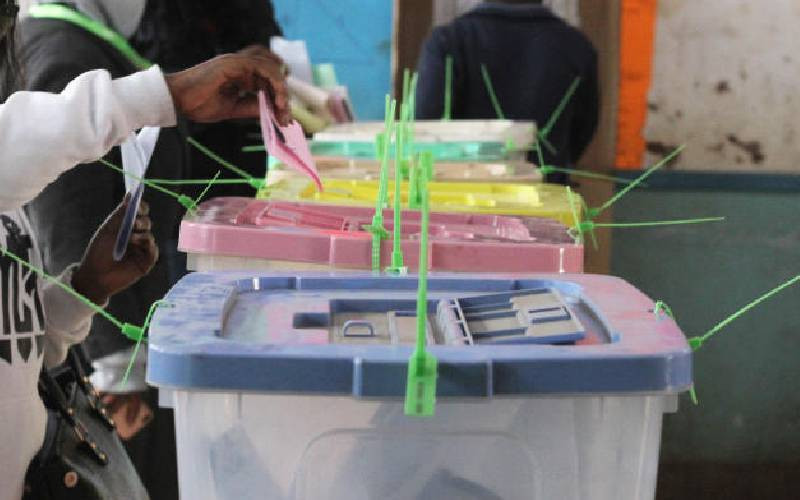×
The Standard e-Paper
Smart Minds Choose Us

A voter casts her vote during the 2022 General election voting at Uhuru Gardens primary school, Langata constituency, Nairobi. [Elvis Ogina, Standard]
Some voters in Nyeri were paid up to Sh2,000 to sell their national identification (ID) cards or vote for particular candidates in the August elections, a report has revealed.